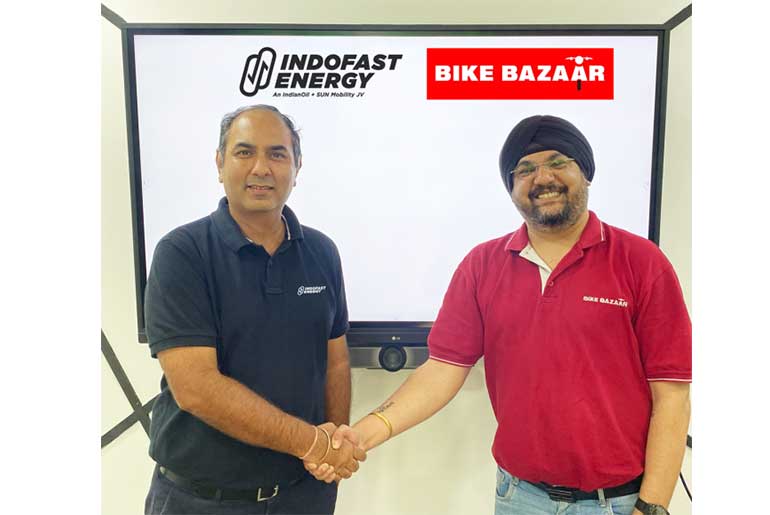Indofast Energy, a leading battery-swapping solutions provider, has announced a strategic partnership with Bike Bazaar, a prominent fleet operator and financier. Under this collaboration, the two companies aim to deploy 5,000 electric two-wheelers (2Ws) across India within the next 18 months.
This initiative is set to significantly accelerate the electrification of last-mile delivery in key sectors such as quick commerce, e-commerce, and food delivery, supporting India’s rapid transition toward electric mobility.
Electric mobility has become an attractive, viable, and sustainable alternative to fleet operators due to the growing demand for fast, reliable deliveries and rising fuel costs. Indofast Energy will be tackling two of the largest obstacles impacting EV adoption by providing battery-swapping technology: charging downtime and range anxiety. Quick interchangeable batteries can enable delivery riders to replace the exhausted batteries with fully charged ones to enable continuous operations and maximize vehicle usage.
Bike Bazaar has a good reputation when it comes to fleet operations and financing and will be instrumental in the deployment process. Its experience in car leasing, financing, and fleet management is a guarantee that the electric 2Ws are not only available to delivery partners but also economical. We hope that small fleet owners and gig workers who are increasingly moving to EVs will be the beneficiaries of the partnership, as it will reduce their operating expenses.
The five thousand EVs to be rolled out will mainly cover high-density cities and towns where sustainable mobility is most essential. Among the most rapid EV fleet adopters are quick commerce and food delivery companies, motivated by both the need to save on delivery expenses and the need to fulfill sustainability promises.
Talking about the collaboration, Indofast Energy has stressed that the new cooperation will be the first step to developing a strong EV ecosystem in India. The two companies will utilize battery-swapping infrastructure along with financial and fleet management expertise to develop a scalable and replicable model of clean mobility in the country.
The move is also part of a greater India EV adoption strategy and net-zero efforts, as the transport sector is among the largest sources of carbon emissions. An electric shift of mobility, in particular, the last-mile delivery, can significantly reduce air contamination and the use of fossil fuels in urban areas.
As the volumes of delivery in e-commerce and food service are set to explode in the next few years, the demand for cost-efficient, low-cost, and environment-friendly solutions to transportation issues will only continue to increase. Indofast and Bike Bazaar have an opportunity to leverage this trend and become the first to create sustainable last-mile logistics in India.



